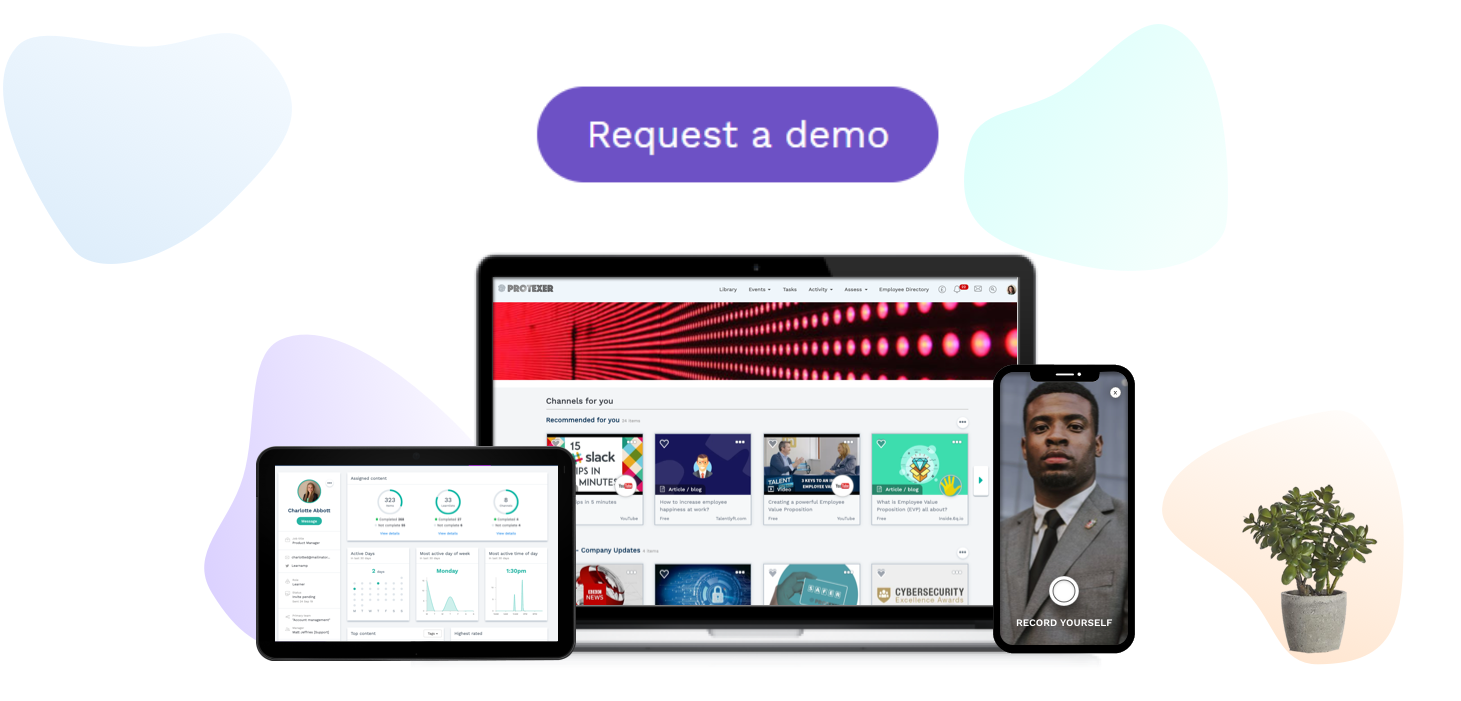Is it time to think about investing in a new LMS that can tackle your current online training challenges? In this article, I’ll highlight 8 reasons why your current LMS is missing the mark.
You thought you’d found the ideal LMS. It checked all the boxes on your must-have list and you even tested its mettle through a free trial or demo. But now it simply isn’t living up to expectations and you aren’t achieving the desired results.
However, before you make the switch to a new Learning Management System, it’s crucial to identify what’s lacking from your current LMS. That way you can find a replacement that fills the gaps and lives up to expectations, instead of purchasing yet another solution that isn’t much of a “solution” at all.
Here are 8 key reasons why your current LMS may not be up to par.
1. Your LMS' User Interface Is Anything But User-Friendly
Your current LMS is packed with plenty of features, but an intuitive User Interface is not one of them. Unfortunately, there’s been a significant learning curve from the very beginning.
It’s not that your team lacks the necessary skills or experience, it’s that the tool presents numerous navigation challenges and the User Interface is overly complicated.
This indicates that it’s time to look for a user-friendly platform that aligns with your team’s talents. Possibly one that offers a single-page architecture and customizable dashboard.
2. There are some compatibility issues with your LMS
Your Learning Management System isn’t compatible with third-party tools. Thus, you had to invest in a new authoring tool, or simply deal with integration obstacles.
Another compatibility issue pertains to data. Migrating data between tools is a complex process, when it really shouldn’t be.
To prevent this problem in the future, look for an LMS that meshes with your existing software and supports multiple data formats.
3. Mobile Learners Are Less Than Impressed
PC and laptop users are perfectly content with the current LMS. But your mobile users find it difficult to access online training materials.
Navigation hurdles, cluttered screens, and tiny buttons that are anything but thumb-friendly cause frustration among on-the-go learners.
Make certain that your next LMS is responsive and multiplatform-friendly so that everyone reaps the rewards of your online training course.
4. It Falls Short In The Reporting Department
Sure, your current LMS has some reporting and analytics capabilities. But they are limited and don’t quite fit the bill.
For example, you are unable to customize reports to focus on specific objectives or employee skill gaps. The remedy for this is to find an LMS with advanced reporting features.
Ideally, one that allows you to personalize what reports you receive and how you receive them. It should also be equipped with data visualizations to help you spot patterns and trends.
5. Updates Are Few And Far Between
You can’t remember the last time the LMS vendor updated the tool or offered an add-on, even if it came at an extra expense. This means that your current LMS is now outdated, and your online training program is missing the latest tech.
It’s essential to find a replacement that offers frequent updates and is backed by an LMS vendor who stays up to date with tech advancements.
When in doubt, schedule a meeting or look for online reviews that discuss how often they update the LMS platform and to what extent.
6. Mounting Hidden Fees That Are Nudging You Over Budget
You now realize that you signed up for more than you bargained for. The LMS vendor has introduced a variety of unexpected or hidden fees that you simply didn’t factor into the LMS budget.
As a result, you’re now spending much more than you intended, which is digging into your online training ROI. One of the best ways to avoid this with your next LMS is to uncover any and all fees associated with the platform. This includes ongoing maintenance and upgrades.
You might also consider signing a long-term contract to lock in the price. Especially if you plan to keep the tool for at least a year.
7. Lack Of Support Services
In regard to support services, LMS vendors cover every spot on the spectrum. There are those who offer 24/7 phone support with a trained tech while others only provide online forums or FAQs.
Unfortunately, many organizations overlook this feature when investing in an LMS. For this reason, you must do your homework and find out what support services they offer and for how much.
Is there an extra fee for phone support? Is their online community active? Do they provide one-on-one assistance in the beginning so that you can master the LMS platform more rapidly?
8. Your Current Learning Management System No Longer Supports Your Training Goals
I saved the best for last. More appropriately, the worst. An LMS that no longer aligns with your training objectives goals has the potential to wreak havoc on your bottom line and employee retention rates.
It must possess all the features and functions you need to achieve your outcomes and keep employees engaged. Otherwise, it simply doesn’t belong in your L&D toolbox.
The same can be said for any other software that hinders rather than helps your online training program. Search for a new LMS that fits into your existing online training strategy and gives your employees the interactive, immersive, and goal-centered online training resources they require.
There is a myriad of reasons why your current LMS may be missing the mark, but these are the most common signs that it’s time for a new tool.
The first step in the LMS evaluation process is to learn what your current LMS platform lacks so that you find a suitable replacement.
So conduct surveys, analyse your metrics and pinpoint training gaps to compile a list of essential functions and features for your new LMS platform.
Do you need some guidance on how make the right LMS choice? Download our free eBook How To Buy The Right LMS: The Complete Guide to discover how to buy the best Learning Management System for your business needs without missing one single detail.
Christopher Pappas is founder of The eLearning Industry’s Network, which is the largest online community of professionals involved in the eLearning Industry. Christopher holds an MBA, and an MEd (Learning Design) from BGSU. eLearning Blogger | EduTechpreneur | eLearning Analyst | Speaker | Social Media Addict






